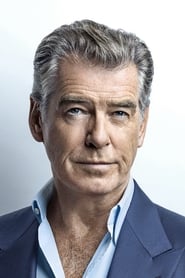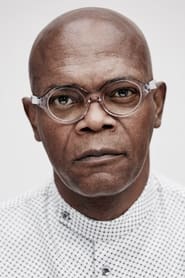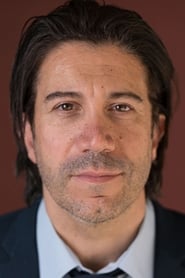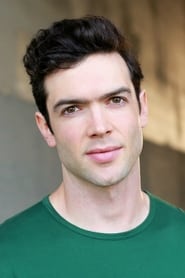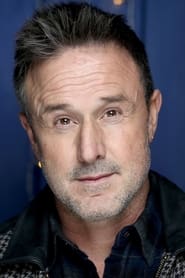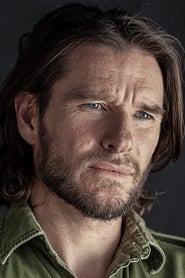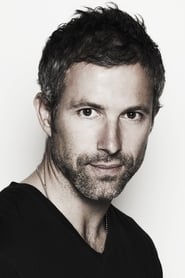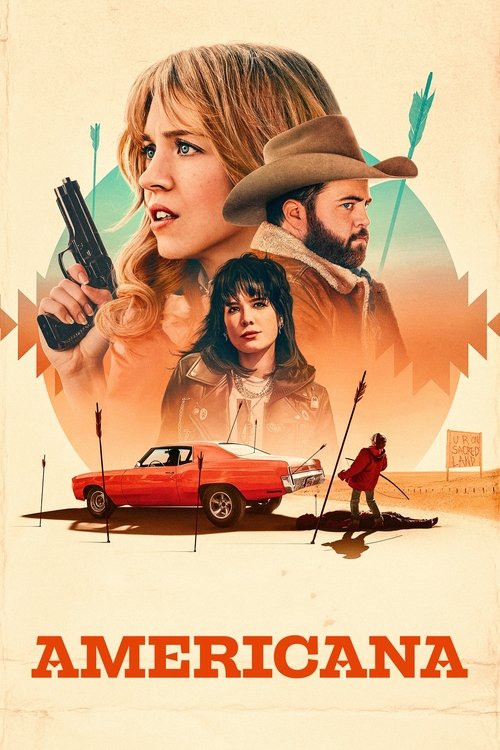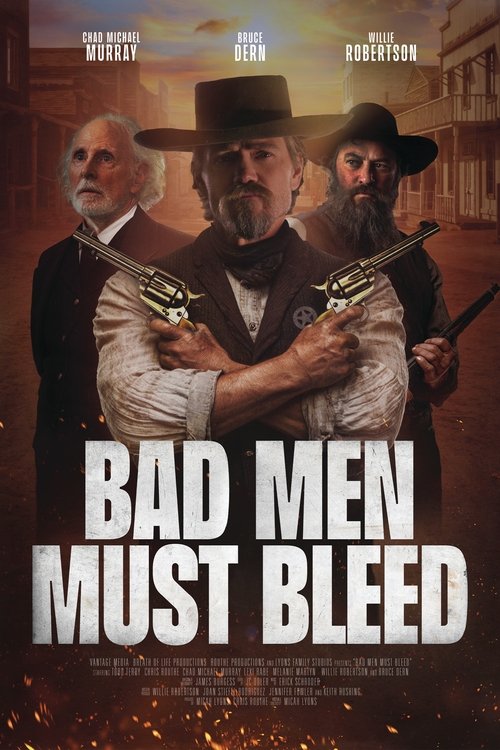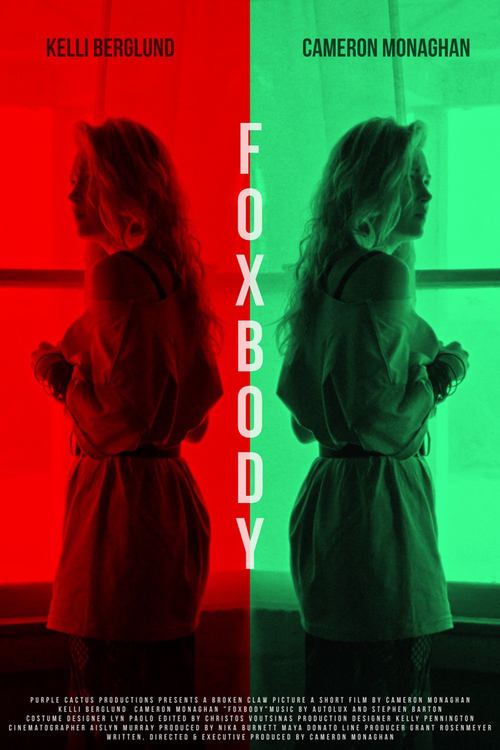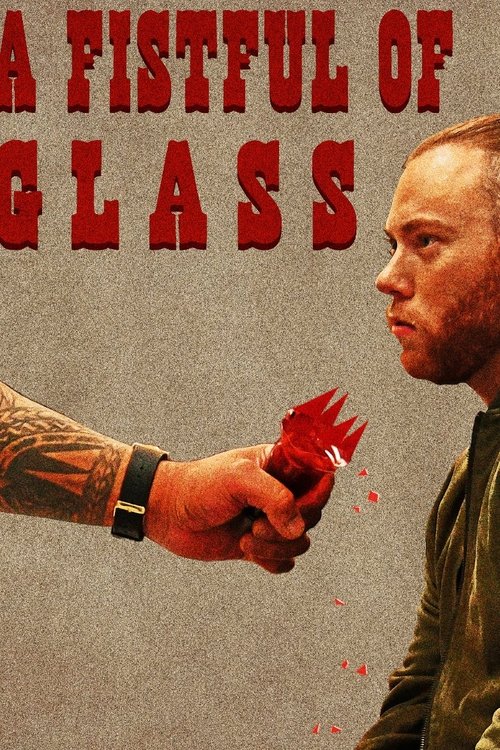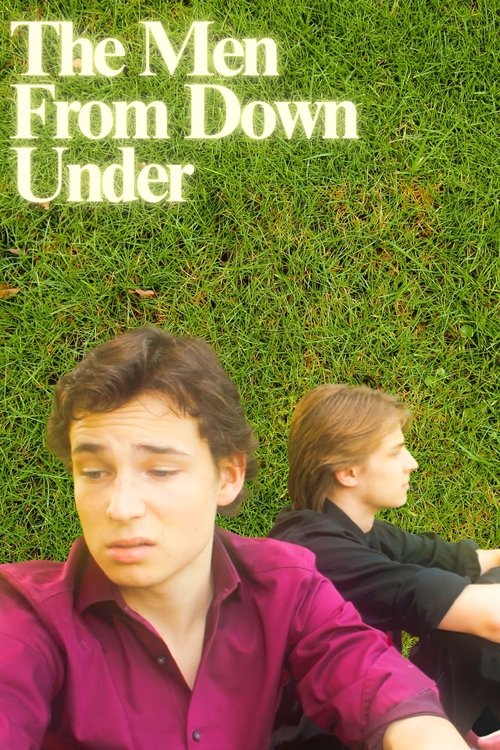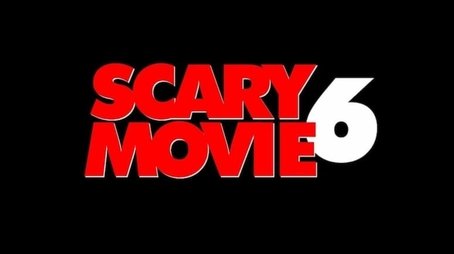
Ask Your Own Question
What is the plot?
A noose falls into frame as the film opens in a cleared town square outside Trinity, Montana, and Henry Broadway stands amid a restless crowd while his father, Isaac Broadway, struggles beneath the rope. Isaac shouts that he is innocent, accusing the local lawman, Gabriel Dove, of framing him for crimes he did not commit. The rope kills Isaac; townspeople drag his lifeless body away. Henry watches the execution and, believing his father's protestations, vows to honor Isaac's last request: to clear the family name and recover whatever truth -- and any hidden fortune -- lies behind the accusations.
Henry arrives in Trinity days later, dusty and determined, and goes straight to the sheriff's office to find Gabriel Dove, the town's present sheriff who is trying to keep order in a place full of grudges. Gabriel greets Henry with a measured calm and tells him that the sheriff Isaac blamed -- a man named Saul Butler -- has been dead for some time. Gabriel warns Henry that Isaac's reputation in Trinity is poisonous: most townspeople treat Isaac as a traitor and Saul as a hero. Gabriel tells Henry that Isaac's claims about being framed have long inflamed old wounds. When Henry presses him, Gabriel cautions that digging into the past will drag up dangerous people and old debts, but Henry insists on pursuing the truth.
Rumors swirl through Trinity that Saul Butler died because of a Blackfoot woman called Running Cub. A local agitator named Gideon, who is already looking for a way to recover perceived losses and settle scores, demands that Sheriff Dove produce Running Cub so she can be questioned. Gabriel tracks Running Cub down outside town, finds her living at the edge of the timber, and confronts her. He insists she keep herself out of Trinity's politics and pain; Running Cub reluctantly agrees to stay away.
Henry takes lodgings at the town saloon and tries to make himself useful by listening to gossip. That night the bar erupts into violence over a woman, a prostituted woman named Julia. A miner named Asa claims Julia as his, and he draws and fires a pistol, shooting Julia in the chest in a sudden, brutal moment. Henry, reacting to the killing, draws his own gun and shoots Asa through the torso, killing him in front of the other patrons. Asa's brother, Red, bolts from the saloon, intent on avenging his brother. Red chases Henry into an alley and raises his rifle, but St. Christopher -- a towering, solemn priest who is revealed to be a former slave -- steps between them and shoots Red dead with a single, precise shot.
The aftermath in the saloon collapses into explanations. St. Christopher tells Henry he once fought alongside Isaac Broadway during the Civil War. He reveals that he and Isaac stole a trove of Confederate gold during the war; Isaac betrayed the partnership, taking Christopher's share and hiding the loot. Christopher says he hired a theatrical man named Jacob, a self-styled stage actor, to force Isaac to confess or reveal the treasure's location. Jacob arrives in Trinity not as a simple actor but with hired gunmen, and when Isaac is executed Jacob's crew begins hunting for Isaac's house and young Henry, searching for whatever treasure Isaac may have concealed beneath the family property.
Christopher bargains with Henry and Gabriel, saying he believes Isaac concealed his portion of the stolen gold beneath Isaac's old home. He confesses he didn't expect the level of retaliation Jacob would bring. Later that night Jacob's men appear at the sheriff's office and seize Henry as a hostage to force cooperation from Isaac's remaining relatives. Gabriel scrambles to respond. Running Cub hears the commotion and rides toward the town, while St. Christopher leaves the churchyard with a long-barreled rifle he keeps for dire moments.
Jacob's band storms the sheriff's office. They shove Henry into the open yard and demand the location of Isaac's hoard; Gabriel defers, trying to stall. St. Christopher arrives silently behind the attackers and opens fire with deadly effect. Running Cub charges in from the side, firing her own weapon, and she and Christopher together cut down Jacob's men. Jacob tries to flee; Christopher shoots him through the shoulder so he cannot escape, and Gabriel finishes Jacob with a headshot when Jacob reaches for a knife. The assault collapses in a storm of smoke and falling bodies: Jacob and his hired guns all die from bullets fired by St. Christopher, Running Cub, and the lawmen who rally behind Gabriel.
Word that violent men are converging on Isaac's gold spreads through Trinity, and Gabriel tells Henry that the search for Isaac's treasure has intensified: other parties have already rifled through Isaac's house once without success. Gideon, enraged and greedy, organizes a posse to chase down Running Cub as a suspected key to the stash. With Gideon pressing for justice and vengeance, Gabriel rides back out on patrol under growing pressure from the town's vigilantes.
Christopher, convinced the treasure is still hidden in the Broadways' home, slips away and returns under cover of dusk. He confronts Sarah Broadway, Isaac's widow, in the parlor, demanding to know where the gold is. He ransacks the rooms and accuses Sarah of complicity in Isaac's betrayal. Henry arrives and intervenes, telling Christopher bluntly that the gold is gone. Christopher lashes out with a pistol and the house becomes a tense standoff; Henry blocks further violence and convinces Christopher to bide his time.
Gideon's posse captures a rumor that Running Cub is hiding in the foothills, and they ride to take her. They surround her camp and begin to drag her in for interrogation. Gabriel arrives in the nick of time; he forces the posse to stand down by telling them a truth he has kept for years. Gabriel reveals that he himself killed Saul Butler years before, not out of ambition but to save a child that Butler threatened. He had never confessed because admitting the full story would reopen old wounds, but in the present moment he tells the posse that Saul was no saint and that Running Cub did not murder him. The men bristle at the revelation, and Gideon's anger turns to fury. A shootout erupts at Gabriel's ranch-house when Gideon refuses to accept Gabriel's explanation. Bullets rip the night: Gideon's men fire on Gabriel's home while Gabriel and a circle of defenders -- including Henry, St. Christopher, and Sarah -- return fire from windows and behind barrels.
Gideon's son bolts from cover and charges forward, only to be cut down by Gabe's men as Henry or Gabriel fires into the advancing flank. Gideon's son collapses in a spray of blood. Gideon himself keeps pressing, and in a series of short, violent exchanges Gabriel shoots Gideon dead as Gideon leans past a fence to aim at the house. Most of the posse die in that firefight: men fling themselves behind wagons and are felled by rifle fire from Gabriel's side. Running Cub takes a bullet through the shoulder while attempting to cover a retreat; she staggers, bleeding, as the last of Gideon's men falls. The charge ends in smoke and the bodies of attackers lying still in the yard. Gabriel and Henry, breathing hard and stained with powder, pull Running Cub onto a saddle and ride hard through the night to Gabriel's house.
They arrive at Gabriel's homestead with Running Cub grievously wounded. Inside, Gabriel moves with domestic efficiency; he tends her wound and reveals a private history to Running Cub: she taught him to ride when he was a boy and once helped shelter him. They exchange memory and quiet tenderness while the house's boarded windows still smell of gunpowder. Gabriel locks the doors and prepares for what he knows will be a wider reckoning. He urges Sarah to leave with Julia's orphaned child, an infant named Mabel whom Sarah has taken in. Gabriel insists Sarah and the child should flee Trinity before the town's anger grows. Sarah refuses; she tells Gabriel she will stay and defend the home Isaac left her. Henry also refuses to flee. He vows to stand and protect the house that once sheltered his family, even as the town turns its rage toward anyone who might have helped Isaac.
Gideon's death does not end the turmoil. Christopher and Gideon's surviving allies begin to rally more townsmen for a renewed assault, promising they will take the treasure and settle the town's scores. Christopher, bitter and single-minded, travels through Trinity and ends up at the ramshackle bar in the center of town. He confronts the barkeeper and the preacher there and accuses them of ignorance or obstruction. Christopher pulls a pistol and shoots both the town's barman and the preacher at point-blank range, killing them in front of stunned patrons. He then moves toward the church and begins to dig beneath the floorboards, convinced the gold must lie under Trinity's places of worship. He tears through the wooden boards with a pick and spade, unbothered by the stares of parishioners who watch as the preacher lies dead on his own floor.
Christopher's violence attracts the attention of Henry and Gabriel. They find him in the church amid chips of wood and turned earth. Christopher has a shovel in his hands and a fierce look; he charges them, intent on taking whatever wealth he is certain he can unearth. The three men fight in the dirt: Christopher swings the shovel, Henry ducks and tries to parley, and Gabriel moves to protect Henry. Henry speaks to Christopher in a low voice, offering him a way out: take the share he believes is his and leave the town in peace. Christopher laughs and refuses; he raises his shovel as a weapon and lunges. Gabriel lifts his pistol and fires, the gunshot echoing off the church rafters. The bullet hits Christopher in the chest; he collapses amid the turned earth, blood soaking the timbers. Gabriel steps forward and checks Christopher's pulse; Christopher is dead, shot by Gabriel to stop the man's murderous dig.
After the church brawl, Trinity's resistance splinters. Asa's surviving kin remain restless. Some of Asa's brothers capture Henry in a small, heated attempt at revenge, dragging him to an abandoned shed where they interrogate and beat him for information about Isaac's gold. They use a series of tortures -- blunt instruments and rough questions -- to try to break him. Henry, bruised, refuses to reveal anything he does not know. As the abuse heightens, one of the assailants' sisters -- a woman connected to the brothers, described only as their sister -- bursts into the shed and stops the violence. She shames her brothers and forces them to let Henry go, threatening to identify them if they continue. The brothers back down, leaving Henry bloodied but alive. No one among them dies in that confrontation.
The town's remaining attackers mount a final, chaotic attempt to overrun Gabriel's house and take whatever they think Isaac hid. They come in a ragged rush, firing pistols and swinging rifles. Henry and Gabriel meet the charge on the porch and behind crude barricades. They pick targets quickly: Henry shoots an attacker as he leaps over a fence; Gabriel drops another man who tries to throw a dynamite charge into the parlor. St. Christopher takes a position at the stable window and cuts down two attackers with rifle fire. Sarah fights alongside them with a shotgun, blowing an assailant backwards as he comes through the door. The attackers break and fall under the defenders' aim; Gideon's men are all killed, several shot in the neck and chest by Gabriel, Henry, and Christopher during the pitched defense. The yard smells of smoke and blood; the final dying man in the fray slips and collapses into the dust. The last gunshot ends the attack, and bodies of attackers lie scattered around Gabriel's house and under the outbuildings.
With the immediate violence quelled, Henry confronts the practical aftermath of Isaac's life. He returns to Isaac's old home, climbing the sagging stairs and searching under floorboards and behind hearthstones. He and Gabriel find signs that others have already searched the house -- disturbed planks and scorched marks -- but no gold. Sarah sits on the parlor floor and watches Henry as he sifts through the empty places. He uncovers a small, charred chest that contains no treasure but does contain the ashes of Isaac, collected and left for Henry to decide what to do with. Henry kneels in the doorway and scatters the ashes out across the prairie wind with steady hands, watching the dust lift and vanish into the sky. He says nothing about revenge; instead he looks toward the horizon as if closing a chapter.
Before leaving Trinity, Henry considers what to do with Isaac's property. The title to the house still stands in Henry's name, but he sees that Gabriel has built a life and family there: a home with a yard, a roof he keeps secured, and people he cares for. Henry realizes that possession would only stir more conflict. He tells Gabriel he will accept the inheritance on paper but relinquishes the house to Gabriel's keeping; he wants the town to have a stable steward and does not want the burden of the house to turn into another focal point of greed. Gabriel refuses at first; he tells Henry he made his living enforcing law and that he has no need for grants of land. Henry insists, and Gabriel recognizes that Henry has matured through the fighting, the loss of his father, and the choice to let things go rather than keep pursuing a phantom fortune.
In a quiet ceremony on Gabriel's porch, Gabriel takes a battered sheriff's badge from his chest and slides it into Henry's palm. He tells Henry, in low words, that Trinity needs someone who can hold to the law without letting judgments become vengeance. Gabriel pins the badge to Henry's coat himself. Henry accepts, fastening the badge and looking at the town he has helped save and the people who remain. Running Cub, still convalescing from her wound, watches from the doorway. Sarah rocks Mabel in her lap and offers Henry a small nod of recognition. Gabriel walks Henry to the edge of town that afternoon, watching as Henry mounts a horse. Henry pauses, takes one last look at Isaac's empty home and the charred chest he has left behind, then turns his horse toward the wide road that leads away from Trinity. Gabriel calls to him, telling him he is welcome to return; Henry looks back once more, then spurs the horse and rides away down the rutted trail toward the next stretch of horizon.
The film closes on Gabriel standing on his porch, his coat still smelling of gun smoke, his hand resting on the rifle at the door. He watches Henry shrink into the distance, the sheriff's badge bright on Henry's chest. Running Cub returns to the hills beyond Trinity, moving slowly to mend by herself. Sarah and Mabel remain in the house that Isaac once inhabited, and St. Christopher goes back to the church to help rebuild the damage they caused while digging in the dirt. Trinity remains bruised and quiet, its scores settled by gunfire and its dead counted by the living: Isaac hangs dead from a mob's rope, Julia lies shot by Asa and Asa lies shot by Henry, Red falls to St. Christopher's bullet, Jacob and his hired guns die under the converging fire of St. Christopher and Running Cub, Gideon and his son fall in the defense of Gabriel's house, the town's barman and preacher are shot by Christopher during his obsessive search, and Christopher himself is shot dead by Gabriel in the church. Henry cleans the blood from his hands, scatters his father's ashes, and leaves Trinity with a badge on his chest and a steady purpose in his gait. Gabriel stays and watches the road until Henry becomes a distant dot, then turns back into his house as the town begins the slow work of rebuilding.
What is the ending?
The ending of The Unholy Trinity (2025) concludes with a violent showdown in the town of Trinity, Montana, where Henry Broadway, Sheriff Gabriel Dove, and St Christopher confront the conspirators who framed Henry's father, Isaac. After a tense gunfight, Henry and Gabriel survive, the truth about Isaac's past is partially revealed, and the corrupt legacy tied to the old sheriff Saul Butler is laid to rest. Henry finds a measure of justice and peace, while Gabriel continues his role as the town's protector. St Christopher's fate is left ambiguous but he plays a crucial role in the resolution.
Expanded narrative of the ending, scene by scene:
The final act opens with Henry Broadway arriving in Trinity, intent on avenging his father Isaac's wrongful hanging and clearing his name. He learns from Sheriff Gabriel Dove that the previous sheriff, Saul Butler, is already dead, and the town's view of Isaac is deeply divided. Gabriel, a calm and principled man, tries to dissuade Henry from stirring trouble but sympathizes with his quest.
Tensions escalate when Henry kills a local miner, Asa, in self-defense during a saloon dispute. Asa's brothers, led by the vengeful Gideon, pursue Henry relentlessly. Henry escapes with the help of St Christopher, a mysterious former partner of Isaac's who reveals that Isaac had stolen gold during the Civil War and double-crossed him. St Christopher believes Isaac hid his share of the gold under his family home.
Meanwhile, Gabriel investigates rumors about Running Cub, a Blackfoot woman accused of killing Saul Butler. Gabriel finds her hiding but believes in her innocence and advises her to leave town for her safety.
The climax unfolds as Henry is taken hostage by Father Jacob, a stage actor hired by St Christopher to extract a confession from Isaac at his hanging. Jacob, however, has brought armed men intending to kill Henry and seize the gold. Gabriel arrives to rescue Henry but is ambushed by Jacob's men.
A fierce gunfight erupts. With Running Cub and St Christopher's aid, Gabriel and Henry kill Jacob and his men. The violence exposes the tangled web of betrayal and greed surrounding Isaac's death.
In the aftermath, Henry spreads his father's ashes, symbolically laying the past to rest. Gabriel remains the steadfast sheriff, committed to justice and peace in Trinity. St Christopher's role concludes with his assistance in the final battle, but his ultimate fate is left uncertain.
The film closes with a sense of resolution for Henry, who has avenged his father and uncovered the truth, and for Gabriel, who continues to uphold law and order in a troubled town. The legacy of Saul Butler and the corruption tied to Isaac's past are buried, allowing the town to move forward.
Is there a post-credit scene?
The movie The Unholy Trinity (2025) does not have any publicly confirmed post-credit scene based on available information from reviews, plot summaries, and detailed endings. None of the sources mention or describe a post-credit scene following the film's conclusion.
The film ends with Henry dispersing his father's ashes, choosing to let Gabriel keep the family house, and Gabriel giving Henry a sheriff's badge, symbolizing a new beginning and alliance in the town of Trinity. After this resolution, no additional scenes or post-credit content have been reported or described in reviews or plot explanations.
Who is Henry Broadway and what motivates his actions in the story?
Henry Broadway is the young protagonist who witnesses his father Isaac being hanged and believes his father's claim of innocence. Motivated by Isaac's dying wish, Henry returns to the town of Trinity to clear his father's name and seek justice.
What role does Sheriff Gabriel Dove play in the town of Trinity?
Sheriff Gabriel Dove is the current lawman in Trinity who prefers peaceful resolution but is willing to use violence if necessary. He informs Henry that the previous sheriff, Saul Butler, is already dead and tries to maintain order in the town while protecting those he believes are innocent.
What is the significance of the character Running Cub in the plot?
Running Cub is a Blackfoot woman who is believed by the townsfolk to have killed the former sheriff Saul Butler. She is pursued by townsmen wanting to lynch her, but Sheriff Dove believes she is innocent and advises her to leave town.
Who is St Christopher and what is his connection to Isaac Broadway?
St Christopher is a priest and ex-slave who was once Isaac Broadway's partner during the Civil War. He reveals that Isaac stole a significant amount of gold and double-crossed him, and he is still seeking his promised share, which he believes is hidden under Isaac's family home.
What conflict arises involving Jacob and his men in the story?
Jacob, a stage actor hired by St Christopher to extract a confession from Isaac, brings additional gunmen and holds Henry hostage. This leads to a violent confrontation where Gabriel, Henry, St Christopher, and Running Cub team up to kill Jacob and his men.
Is this family friendly?
The movie "The Unholy Trinity" (2025) is rated R, indicating it is not family friendly and is intended for mature audiences. It contains scenes of violence, including shootings and a bullet to the head, which may be upsetting for children or sensitive viewers. The film involves themes of murder, revenge, and complex interpersonal conflicts set in a Western context, which include potentially distressing elements such as death and standoffs.
Specifically, potentially objectionable or upsetting aspects include:
- Multiple scenes of gun violence and people being shot.
- Themes of murder and revenge that are central to the plot.
- Some intense standoff situations and implied brutality.
- Mature language and adult situations typical of an R-rated Western.
No explicit plot spoilers are revealed here, but the overall tone and content suggest it is unsuitable for children and may be disturbing for sensitive viewers.



